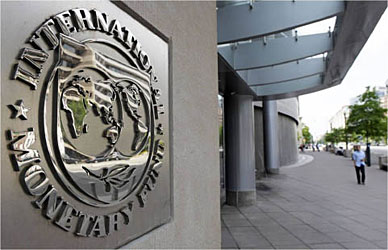
Burundi is emerging from a protracted civil conflict and political instability with the support of the international community. Thanks to the government’s commitment and the support of donors, the country has made significant progress toward nation building and major strides toward greater macroeconomic stability. These two developments have also reinforced the security situation, albeit fragile.
Since 2005, Burundi’s economic performance has been broadly satisfactory despite several external shocks, such as spikes in food and energy prices, and the global financial crisis. Gross Domestic Product grew at an annual average of about 4.2%, helping to reverse the declining trend in per capita income observed over the previous decade. This achievement reflects both substantial donor support and the implementation of sound macroeconomic policies and structural reforms. Indeed, Burundi benefitted from the Enhanced HIPC and Multilateral Debt Relief Initiative (MDRI) for about €640.97 million (US$833 million) in net present value terms in 2009. In addition, to compensate for the 2008 food and oil price shocks, donors scaled up their assistance. Debt relief together with the donors’ financial support provided ample fiscal space for higher spending in priority sectors, critical to meeting the Millennium Development Goals. Nevertheless, because of its narrow export base, Burundi remains at high risk of debt distress. Against this background, maintaining a sustainable external and domestic debt position will require prudent fiscal policy and careful borrowing at highly concessional terms.
Structural reforms to enhance the economy
The authorities have also been moving ahead with the structural reforms to enhance the resilience of the economy despite considerable challenges. The focus has essentially been on: the coffee sector, including by expanding the role of the private sector creating an enabling business environment, public financial management, and revenue mobilisation. The coffee sector is a major source of export earnings and is the principal source of income for some 800,000 households. Some 41 out of 117 coffee washing stations have been privatised. In recognition of the role that the private sector should play in the economy, the authorities have pursued other reforms aimed at encouraging foreign direct investments. These reforms resulted in an improvement in Burundi’s rankings in the World Bank’s ‘Doing Business’ report.
The coffee sector is a major source of export earnings and is the principal source of income for some 800,000 households.
Revenue reforms
Given the dependence on foreign aid, and the scarcity of domestic resources, Burundi has placed strong emphasis on sound Public Financial Management (PFM) in order to ensure greater efficiency of the use of public resources. Early assessments indicate that substantial progress has been made on several aspects of PFM, particularly modernisation of the legal and institutional framework of PFM and budget programming and preparation, as well as the introduction of a single treasury account. With regard to revenue collection, the establishment of the Burundi Revenue Authority (BRA) has been a resounding success and a rallying point for continued donor engagement. The BRA efforts in revenue mobilisation have helped to partially compensate for declining budget support in recent years and stands out as exemplary model. In fact, Burundi’s revenue reforms compare favourably with those undertaken by other developing countries including El Salvador, Tanzania and Vietnam.
Looking ahead, Burundi’s medium-term macroeconomic outlook remains challenging in many respects and is expected to be driven by the agricultural, construction, and tourism sectors. In addition, Burundi’s membership in the East African Community (EAC) also offers a number of opportunities from regional investments in tourism and banking sectors. However, energy availability and a shallow financial sector remain the main bottlenecks to unlocking economic growth.
Burundi’s revenue reforms compare favourably with those undertaken by other developing countries including El Salvador, Tanzania and Vietnam.
Despite remarkable progress, Burundi remains a fragile state. It still needs technical and financial support from the U.N. and other bilateral agencies to complete the transformation of its economy and strengthen its political institutions. In this regard, the overwhelming support of the international community at the Geneva conference on the financing of its poverty reduction strategy second generation is encouraging. And to support the authorities’ endeavours, the IMF will continue to play a catalytic role in promoting donor support, macroeconomic stability, capacity building through technical assistance, and financial support to meet balance of payments needs.





